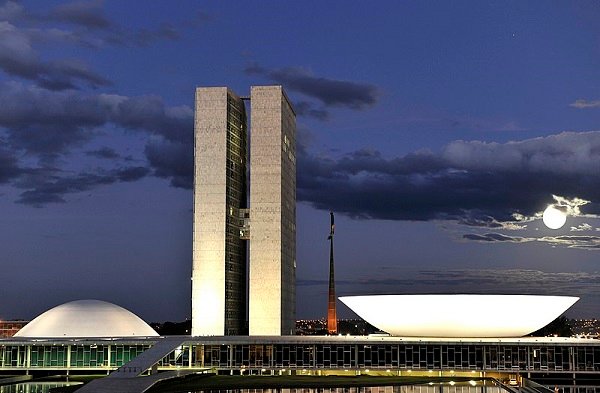This Content Is Only For Subscribers
To unlock this content, subscribe to INTERLIRA Reports.
Last week, more future ministers of the next Lula’s Government were announced. There are now 21 names, out of the 37 ministers, already confirmed. On Thursday (22/12), more 16 ministers were announced by Lula. For the moment, members of the Worker’s Party (PT) predominate among the choices. There are still 16 ministers to be chosen. Political analysts believe that these last spots must be filled by individuals outside the Workers’ Party (PT), which had to form a large alliance to win the elections and must retribute the support. However, internal disputes between ideological party members and last minutes allies have become an obstacle for Lula to finalize the selection and solidify its political support in the Congress.
Already Announced
The first ministers to be announced were: José Múcio Monteiro is the new head of the Defense; Fernando Haddad will lead the new Ministry of Finance; Flávio Dino will become the new Ministry of Justice and Public Security; Mauro Vieira is new Foreign Relations Minister; Margareth Menezes was chosen to lead the Ministry of Culture; and Luiz Marinho occupy the Labour Ministry.
The Newly Announced
- ALEXANDRE PADILHA: SECRETARY OF INSTITUTIONAL RELATIONS – A doctor and federal deputy, he took over the same portfolio at the Institutional Relations Secretariat in Lula’s second government, between 2009 and 2010.
- ANIELLE FRANCO: MINISTRY OF RACIAL EQUALITY – Graduated in journalism from the University of North Carolina, she is a professor, activist and director of the Marielle Franco Institute
- CAMILO SANTANA: MINISTRY OF EDUCATION – Senator and twice Governor of Ceará
- CIDA GONÇALVES: MINISTRY OF WOMEN – A specialist in gender violence, she was the national secretary for combating violence against women in the Lula and Dilma governments
- ESTHER DWECK: MINISTRY OF MANAGEMENT – Economist and professor at UFRJ, worked at the Ministry of Planning
- GERALDO ALCKMIN: MINISTER OF DEVELOPMENT, INDUSTRY AND TRADE – Vice-president-elect, he was governor of São Paulo four times, federal deputy and mayor
- JORGE MESSIAS: GENERAL ATTORNEY OF THE UNION – National Treasury Attorney
- LUCIANA SANTOS: MINISTRY OF SCIENCE AND TECHNOLOGY – Federal Deputy between 2010 and 2018, she is governor of Pernambuco and president of PCdoB
- MÁRCIO MACEDO: GENERAL SECRETARY – Biologist, federal deputy and vice-president of the PT
- MÁRCIO FRANÇA: MINISTRY OF PORTS AND AIRPORTS – Lawyer, was councilor, twice mayor of São Vicente, federal deputy and governor of São Paulo
- NISIA TRINDADE: MINISTRY OF HEALTH – Sociologist, teacher, Fiocruz employee since 1987 and president of Fiocruz since 2017
- RUI COSTA: CIVIL HOUSE – Economist and politician, the PT is the current governor of Bahia and was a federal deputy for the state.
- SILVIO ALMEIDA: MINISTER OF HUMAN RIGHTS – Lawyer and writer, Bachelor of Laws from Mackenzie and Doctor from the University of São Paulo
- VINICIUS CARVALHO: GENERAL CONTROLLERSHIP OF THE UNION – Lawyer and former president of the Administrative Council for Economic Defense
- WELLINGTON DIAS: MINISTRY OF SOCIAL DEVELOPMENT – He was councilor, state and federal deputy, twice senator and four times governor of Piauí
PT Predominated
With most of the future ministers already chosen, the PT secured for itself a kind of shareholding control of the new government —the main decision-making posts and command of the great showcase of the social area, the expanded Bolsa Família.
Share Power and Secure Support
Due to the fierce and large political opposition expected from the group faithful to President Jair Bolsonaro, for political analysts, part of the remaining 16 ministries must be used to strengthen Lula’s political support in the Congress, specially among members of the political group known as “Centrão”. However, this mission has not been without obstacles since the wide coalition responsible for Lula’s reelection is quite heterogeneous and hard to conciliate. For instance, one of the most important “last minute” Lula’s ally, Simone Tebet, wanted to become Social Development Minister, but this went to a PT member, Wellington Dias. Then, she was offered the position of Environment Minister, which she turned down. The position was coveted by another ally, Marina Silva.
If the future government is not skillful to complete the distribution of positions and secure the needed support, the consequences can be seen in management and governance, given that PT members will have less than 15% of the seats in the Chamber. Therefore, it is in the PT’s difficulty in sharing power that lie the greatest fears regarding the new government.




